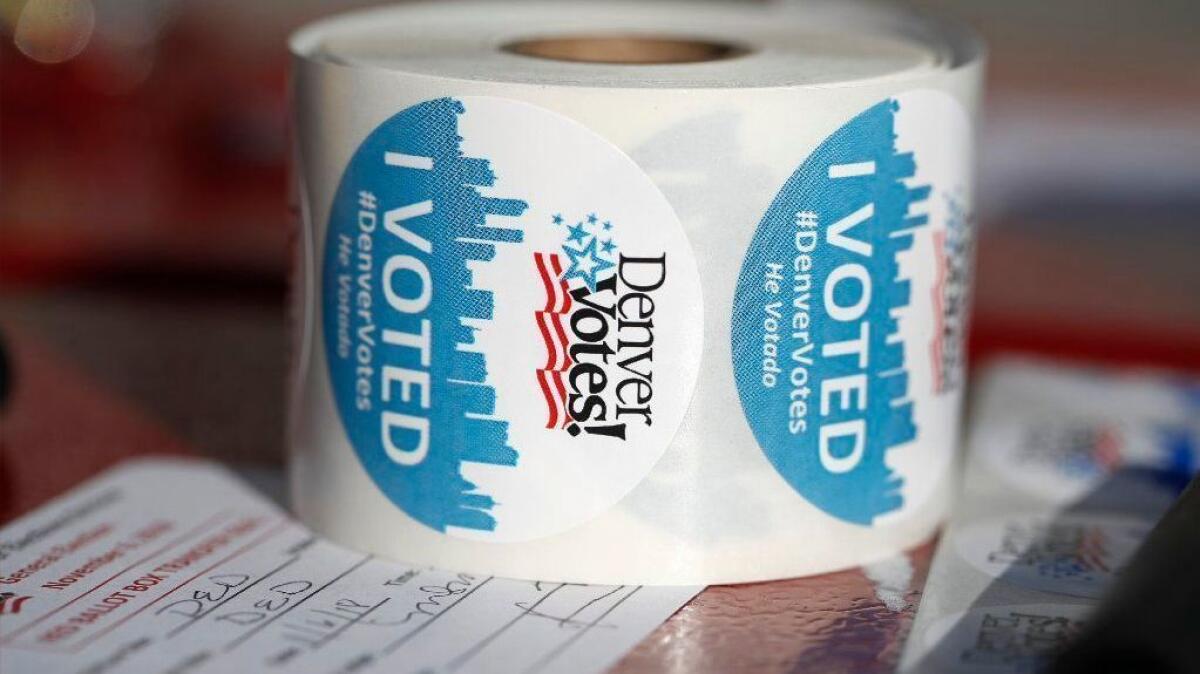Readers React: Why the framers created the electoral college doesn’t matter. It’s undemocratic and outdated

To the editor: I cannot disagree with the assertions by John Yoo and James Phillips about the “whys” behind the original establishment of the electoral college.
But the fact that some Democrats now seeking to abolish it may have missed some historical nuances in no way justifies its continued existence. That’s a false equivalency.
The authors acknowledge that in two recent presidential elections, the victor lost the popular vote and, astonishingly, that the electoral college “at least dilutes democracy.” The electoral college, like the allocation of two senators per state regardless of population, is a remnant of an agrarian age, and it makes no sense to retain it.
Jennifer Pinkerton, Glendale
..
To the editor: Rather than scrapping the electoral college, it could be made much more equitable with a simple adjustment.
Congressional districts are apportioned by population. However, each state gets two senators regardless of size, and the number of electors per state is equal to its total congressional representation.
If electoral votes were determined only by the number of a state’s House districts, the final outcome of a presidential election may more accurately reflect the will of the voters.
Currently, Wyoming (population 577,000) casts three electoral voters, which comes to one per 192,000 residents. California (population 39.5 million) gets 55 votes, or one per 718,000 residents. Under this revised plan, Wyoming’s one electoral vote, because it has one House representative, would represent 577,000 residents, and each of California’s 53 votes would represent 745,000 people.
This is not perfect, and it would not mollify those endorsing direct elections, but is much more equitable than the system we have today.
Richard Shafarman, Santa Clarita
..
To the editor: Leave it to Yoo to co-author an op-ed article torturing readers with an illogical argument.
Yoo and Phillips decry the “partisan agenda” intended to “demonize” the current system of electing the president. They assume that Democrats would reverse their stance if their candidate lost the popular vote but won in the electoral college. They cannot know this because it has never happened.
The writers depend heavily on historical analysis, largely neglecting the fact that 230 years have passed since the adoption of the Constitution. Education, at least through high school, is now almost universal, and communications about current events are nearly instantaneous.
Whether slavery was or wasn’t partially responsible for the establishment of the electoral college is totally irrelevant. What’s most relevant is that my vote, as a resident of California, carries only about one-fourth the weight of any resident of Wyoming’s. Twice since 2000 the U.S. has elected a president who lost the popular vote, and twice we have paid dearly for this convoluted, out-of-date, undemocratic system.
Ronald P. Wolff, Claremont
..
To the editor: One justification for the electoral college is that without it, candidates would focus on large states at the expense of small states. But while large states such as California and New York are ignored, so are smaller states such as Montana, Wyoming, Mississippi and Alabama — because they are not “swing” states.
In general elections, everyone is ignored except for a few undecided voters in several swing states.
Large corporations like Walmart, Starbucks and McDonald’s don’t just sell in urban coastal areas, they sell everywhere. Without the electoral college, candidates would have to sell themselves everywhere too.
Davis D. Danizier, Oceanside
Follow the Opinion section on Twitter @latimesopinion and Facebook
More to Read
A cure for the common opinion
Get thought-provoking perspectives with our weekly newsletter.
You may occasionally receive promotional content from the Los Angeles Times.






